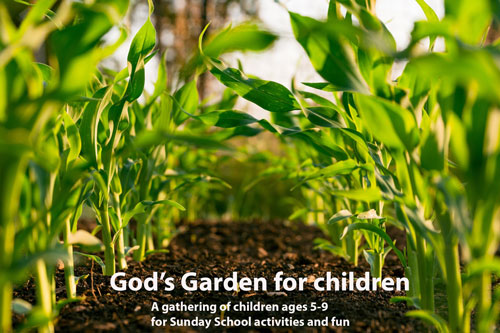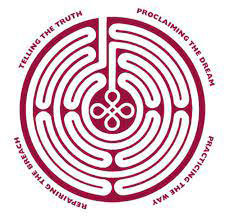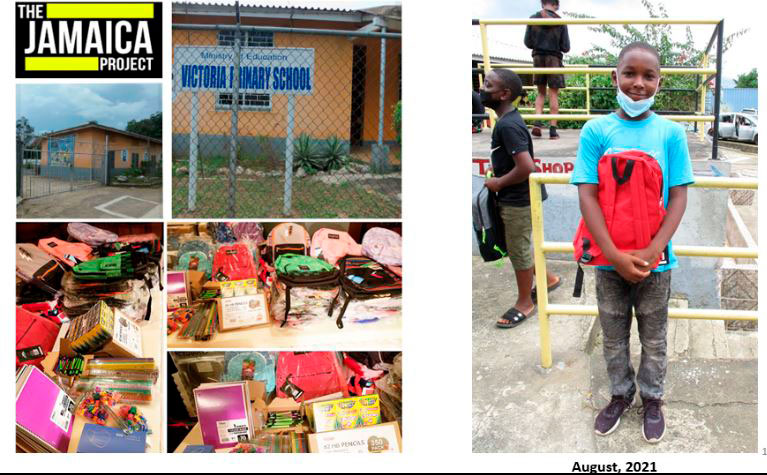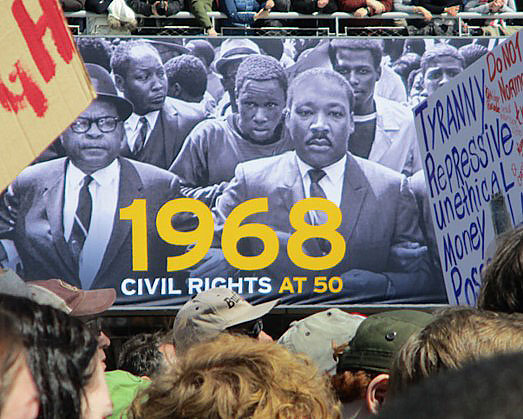
Begins Sun Sept 17, 10:30am -“God’s Garden” in the Parish House—A gathering of children ages 5-9 for Sunday School activities and fun, led by Elizabeth Heimbach
St. Peter's Episcopal Church, Port Royal, VA

We are a small Episcopal Church on the banks of the Rappahannock in Port Royal, Virginia. We acknowledge that we gather on the traditional land of the first people of Port Royal, the Nandtaughtacund, and we respect and honor with gratitude the land itself, the legacy of the ancestors, and the life of the Rappahannock Tribe. Our mission statement is to do God’s Will in all that we do.

Begins Sun Sept 17, 10:30am -“God’s Garden” in the Parish House—A gathering of children ages 5-9 for Sunday School activities and fun, led by Elizabeth Heimbach

Please consider joining Sacred Ground, the group at St Peter’s working specifically for racial reconciliation in our lives, in our community, in our nation and in the world. All are welcome. We are meeting on Zoom on Sept. 12.
Members of the group are coordinating with Germanna Community College Workforce to seek a recipient for the St Peter’s Sacred Ground Scholarship as we move forward.
We are seeking information from the Diocese about the history of St Peter’s, so that we can understand our history more fully as we learn about how our past is intertwined with the institution of slavery.
We hope to deepen understanding of the history and culture of the Native Americans of the Rappahannock and Patawomeck Tribes by planning a field trip to the Patawomeck Museum and Cultural Center in Stafford and working to establish a connection with the Rappahannock Tribe.
The group will also choose a book to read and to discuss as we to continue increase the knowledge that will help us to improve our work for racial reconciliation.
Join the meeting on Zoom, 7PM on Tuesday, September 12. https://us02web.zoom.us/j/85488115724?pwd=K0tJTTV1VTA4Z3RLUWhUZlUwdlkzdz09 Meeting ID: 854 8811 5724 Passcode: 539098
Click here to view in a new window.

In 2021, St. Peter’s fundraising contributed $3,000 for the school project. Here is the presentation from that trip.
A mission trip was organized to setup the school distribution. The supplies were sent ahead of the distribution.
In 2023 we are refreshing the supplies as well as moving to supply additional items, like computers. This year only Andrea, Ken and Laura will be going to deliver the supplies.
Background
Victoria Primary School, formerly Victoria All-Age is located in North West St. Catherine about two (2) miles from the major town of Linstead in the farming community of Victoria. Victoria, along with the adjoining community of Banbury, where most of the children are from, has a populace of over 20,000.
Approximately 10 % of the adult population is dependent on farming for a living, some of the produce from this activity is sold at the Linstead Market and the remainder kept for domestic use. Another 30% depends on vending as their main means of livelihood, 40% is employed while the remaining 20% is unemployed.
The current parent population is very young with the average age being about 25 years. Most of them have attained secondary level of education but have not moved on to tertiary learning but instead have acquired a skill in order to become employable.
The school was originally a shift school, an elementary. It was built to house about 200 children. At the time of the 2021 mission trip school population it was 330
At the beginning of each school year, some parents often have financial challenges in purchasing items to send their children back to school. Some of these include the purchasing of school bags, writing books, pencils and uniforms etc. There are times when past students will assist in purchasing some of these items.
Mondays in Lent, Beginning on Zoom, March 6, 7pm Zoom link Meeting ID: 873 0418 9375 Passcode: 092098
Every week when we meet to worship, we hear a Psalm. The familiar words of the Psalms wash over and through us, a foundational part of our liturgies. We hear these psalms every week because their words hold deep theological significance for each of us and for our lives as the community of God.
The Psalms teach us about the life of God, and about the life that God intends for us and for the world, as J. Clinton McCann, Jr., suggests in his Introduction to the Psalms in The New Interpreter’s Bible, Vol IV. We will be using McCann’s commentary to guide us through our Lenten/Easter study. The themes in the following paragraphs come from McCann’s commentary.
The psalms teach us about happiness, the complete orientation of life to God and perpetual openness to God’s instruction, and the joy we find in God’s forgiveness and God’s faithful love.
We will learn more about taking refuge in God and trusting in God. The psalms describe righteous people as those who acknowledge their fundamental dependence on God for their lives and for the future, the people who live by grace.
“Justice for all!” God desires life and a future for all living things, for peace on earth. So when we choose to live under God’s rule, we work for political and economic systems that provide just access to everyone. If we are living in God’s reign, then we will want to live in partnership with all other species of creatures and in partnership with the earth itself. The Psalms have a lot to say about justice for all.

“The Lord reigns!” This statement lies at the heart of the Psalter, describing not some far off future, but the present reality. Much of our current reality seems to deny this truth. But there it is! The Lord does reign, even in the midst of opposition and suffering.
And we people of God respond to God, even in the midst of suffering, with prayer and praise, as do the writers of the Psalms and all of the people who have sung, read and prayed the psalms down through the centuries.
As the Psalms make clear, the character of God is defined by God’s steadfast love. When Israel’s future hangs in the balance, God (as God does in the Torah as well) reveals God’s self to be merciful, gracious, slow to anger and abounding in steadfast love and faithfulness.

God’s justice and God’s steadfast love come together in the person of Jesus, who knew the Psalms intimately. The Psalms shaped Jesus’ life and understanding of the Reign of God. Jesus is the ultimate example of God’s steadfast love for all of creation.
During our Psalm study, we will talk about how and when the psalms were collected, learn about different categories of psalms, how the Babylonian exile influenced the collections of Psalms, and most importantly, how the Psalms speak to us today about God and our relationship to God. We’ll learn something about each of the 150 psalms and their value for us as we grow in faith in God. We’ll learn how to apply the Psalms to our daily lives.